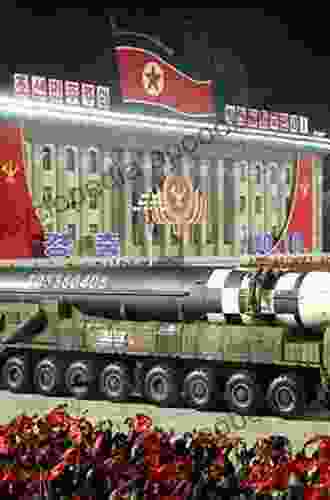North Korea's nuclear weapons program has been a major concern for the international community for decades. The regime's development of nuclear weapons and ballistic missiles capable of reaching the United States and its allies has raised serious questions about the stability of the Korean Peninsula and the broader Asia-Pacific region.
4.1 out of 5
| Language | : | English |
| File size | : | 957 KB |
| Text-to-Speech | : | Enabled |
| Screen Reader | : | Supported |
| Enhanced typesetting | : | Enabled |
| Word Wise | : | Enabled |
| Print length | : | 248 pages |
| Lending | : | Enabled |
| Item Weight | : | 10.6 ounces |
In recent years, North Korea has made significant progress in its nuclear and missile programs. The regime has conducted six nuclear tests and numerous missile tests, including tests of intercontinental ballistic missiles (ICBMs). These developments have heightened concerns about the threat posed by North Korea's nuclear weapons and have led to renewed efforts by the United States, South Korea, and other countries to find a diplomatic solution to the crisis.
North Korea's Nuclear Weapons Program
North Korea's nuclear weapons program began in the early 1990s. The regime's first nuclear test was conducted in 2006, and it has since conducted five more tests. North Korea is believed to have a stockpile of between 20 and 60 nuclear warheads, and it is believed to be working to develop a nuclear-tipped ICBM that could reach the United States.
North Korea's nuclear weapons program is a major threat to international security. The regime's use of nuclear weapons could have devastating consequences for the Korean Peninsula and the broader Asia-Pacific region. It could also trigger a nuclear arms race in the region and increase the risk of a global nuclear war.
North Korea's Missile Program
North Korea's missile program is another major concern for the international community. The regime has developed a variety of missiles, including short-range ballistic missiles (SRBMs),medium-range ballistic missiles (MRBMs),and ICBMs. North Korea has also developed mobile launchers for its missiles, which makes them more difficult to track and intercept.
North Korea's missile program is a threat to international security because it could be used to deliver nuclear weapons to targets in the United States and its allies. The regime has threatened to use its missiles to attack the United States on several occasions, and it has conducted numerous missile tests that have demonstrated the range and accuracy of its missiles.
The US Response to North Korea's Nuclear and Missile Programs
The United States has been the leading country in responding to North Korea's nuclear and missile programs. The US has imposed economic sanctions on North Korea and has worked to build a coalition of countries to put pressure on the regime to give up its nuclear and missile programs. The US has also deployed military assets to the Korean Peninsula and has conducted joint military exercises with South Korea and other allies.
The US has made it clear that it will not tolerate North Korea's development of nuclear weapons and missiles. The US has said that it is prepared to use military force to prevent North Korea from using its nuclear weapons or missiles against the United States or its allies.
The International Response to North Korea's Nuclear and Missile Programs
The international community has also been concerned about North Korea's nuclear and missile programs. The United Nations Security Council has passed a number of resolutions condemning North Korea's nuclear and missile tests and calling on the regime to give up its nuclear and missile programs. The UN Security Council has also imposed economic sanctions on North Korea.
Other countries have also taken steps to pressure North Korea to give up its nuclear and missile programs. China, North Korea's main ally, has called on the regime to stop its nuclear and missile tests and to return to negotiations. Russia has also called on North Korea to stop its nuclear and missile tests and to return to negotiations.
Prospects for a Diplomatic Solution
The United States and its allies have said that they are willing to negotiate with North Korea to find a diplomatic solution to the crisis. However, they have said that they will not negotiate while North Korea is continuing to develop its nuclear and missile programs.
North Korea has said that it is willing to negotiate with the United States, but it has not said whether it is willing to give up its nuclear and missile programs. The regime has said that it will only give up its nuclear and missile programs if the United States removes its troops from South Korea and ends its economic sanctions on North Korea.
The prospects for a diplomatic solution to the North Korea nuclear crisis are uncertain. The United States and its allies have made it clear that they will not tolerate North Korea's development of nuclear weapons and missiles. However, North Korea has said that it will not give up its nuclear and missile programs unless the United States removes its troops from South Korea and ends its economic sanctions on North Korea. It is unclear whether the United States and its allies are willing to make these concessions.
North Korea's nuclear weapons and missile programs are a major threat to international security. The regime's use of nuclear weapons could have devastating consequences for the Korean Peninsula and the broader Asia-Pacific region. It could also trigger a nuclear arms race in the region and increase the risk of a global nuclear war.
The United States and its allies have been working to pressure North Korea to give up its nuclear and


























































































